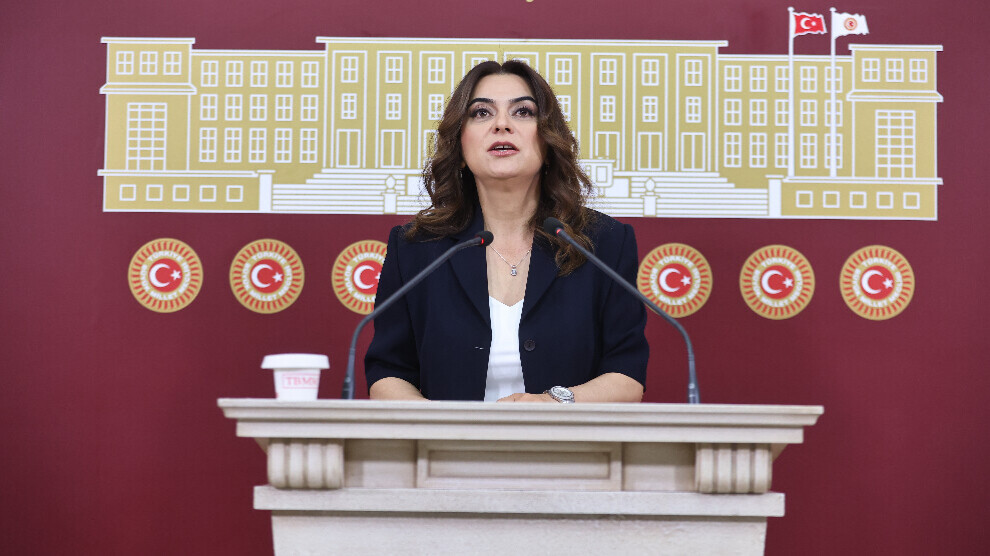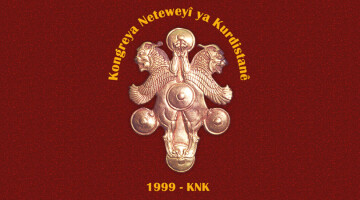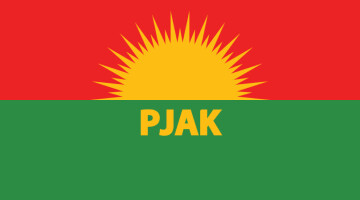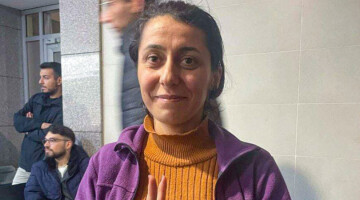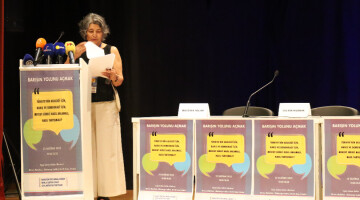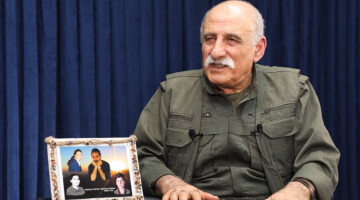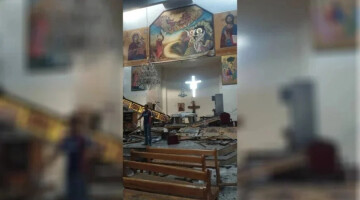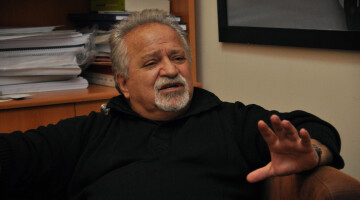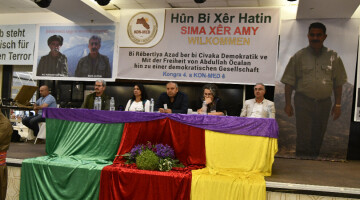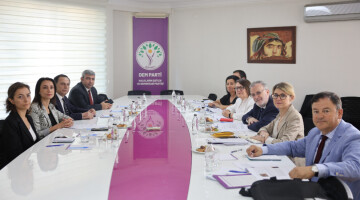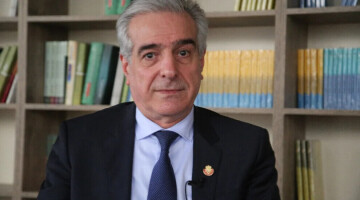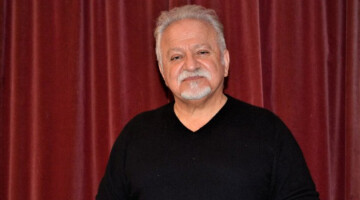Gülistan Kılıç Koçyiğit, the People's Equality and Democracy Party (DEM Party) Group Deputy Chair, held a press conference in Parliament on current developments.
Koçyiğit stated that Parliament Speaker Numan Kurtulmuş had invited the group deputy chairs of all political parties to a meeting regarding the commission on social peace and democratization, which is planned to be established in Parliament. Accordingly, party representatives will meet with Kurtulmuş in Parliament tomorrow evening.
Commenting on the escalating conflicts in the region, Koçyiğit stated that the deadlock in the wars in the Middle East is deepening, resulting in the mass killing of people and displacement from their lands. She called for everyone to act for more peaceful negotiations and urged international institutions to take responsibility in this regard.
Referring to Kurtulmuş’s invitation, Koçyiğit said the following: “First and foremost, we would like to express our great satisfaction with this invitation. We are very pleased that all parties have been invited here. We welcome with great satisfaction that this initiative has been launched before the Parliament's recess, and that steps have been taken to continue it. We have also prepared a draft for the commission and are ready to contribute. This preparation is primarily aimed at fostering cooperation and consensus.
One of our priorities is that this commission be established with the broadest possible social and political consensus. Most importantly, we consider it crucial that this process be viewed as a preliminary step and shaped accordingly in terms of the legal framework frequently highlighted by Mr. Öcalan during the talks held in Imrali. Another important issue is that the commission should serve to increase transparency in the process, both for the public and for the parties in Parliament that support peace and democracy. We also consider it important that the commission be permanent rather than temporary.
The commission should go beyond simply writing a report and stand a substantial structure that works over the long term, opening up new topics as it progresses and making recommendations. It should not be a commission limited to political parties, but one that engages with many different segments of society. In that sense, as we have said in the past, we are not talking about a technical commission. We are talking about a process and mechanism that will facilitate the consolidation of peace, address the issue at its root, engage in in-depth discussions, and evaluate realistic proposals. We are confident that the work carried out by the commission will enable the Grand National Assembly of Turkey to play its historic role in the peace process. From that perspective, transforming the parliamentary arena into a platform for peace is in the interest and benefit of all 86 million citizens. This is our peace, and we must all embrace it.
As we discuss Mr. Öcalan's “Call for Peace and a Democratic Society,” we are inevitably focused on the prisons and the government's actions, on whether the injustices are remedied. Everyone, including us, the entire public, and relatives of prisoners are closely following the process. Unfortunately, Turkey has turned into a prison. The reality of prisons is one of the darkest and most chaotic issues we face today. Enough of unjust prolongation of sentences, systematic violations against sick prisoners, the denial of their rights and the practices that have turned prisons into death houses and torture chambers. We demanded the abolition of the Administrative Monitoring Boards, but unfortunately, neither our voices were heard, nor any steps were taken on this matter. Today, these boards continue to prevent the release of political prisoners and systematically obstruct their freedom.
Despite having served their sentences, prisoners are deprived of their freedom on abstract grounds such as “lack of remorse.” For example, a detainee who has not received any disciplinary punishment and whose release date has arrived is not released because he has not changed his thoughts and is deemed “not well-behaved.” A system of punishment within punishment is being implemented. In other words, an administrative board is making decisions that have judicial consequences and is operating this as part of a political revenge process."

